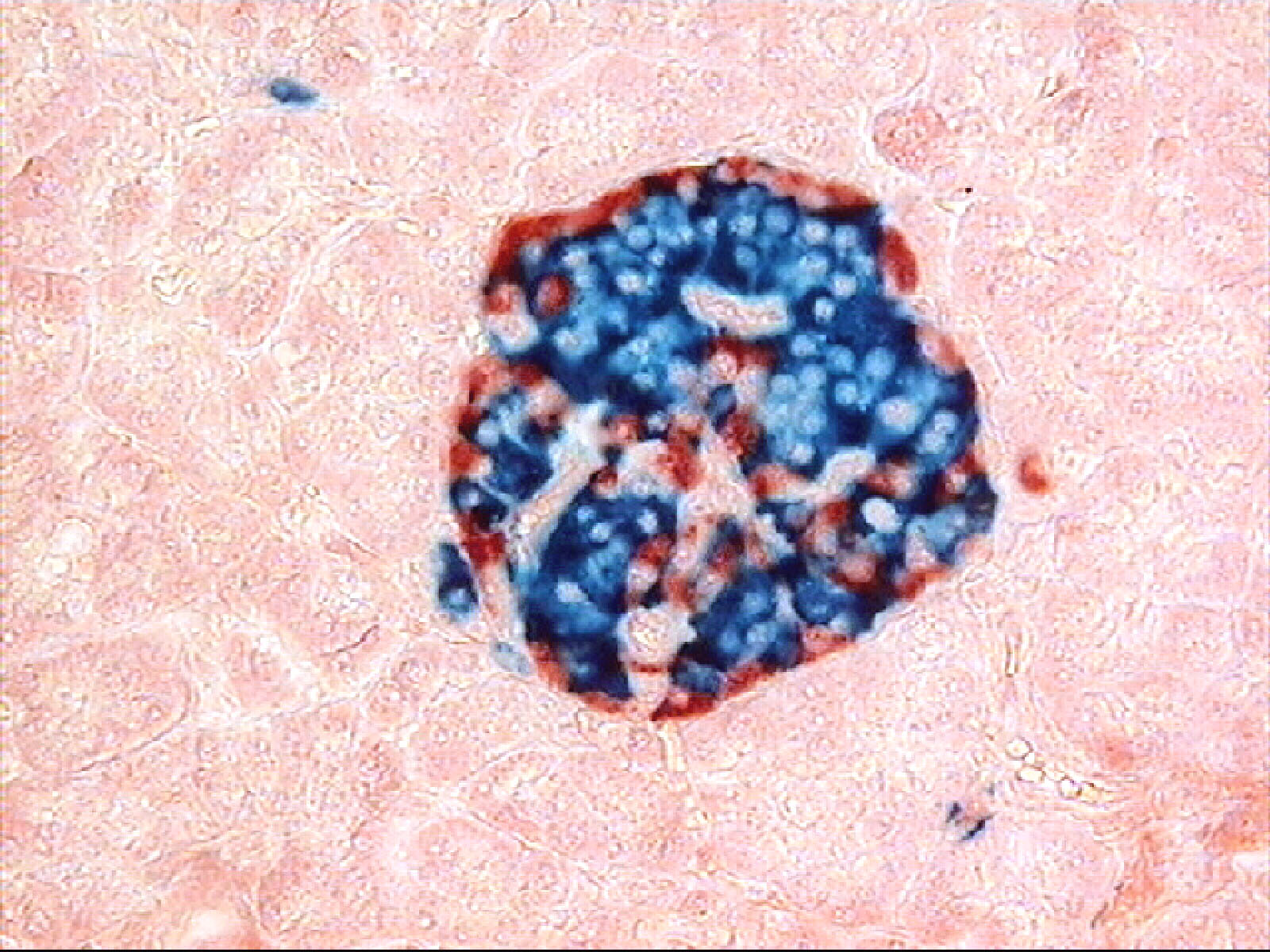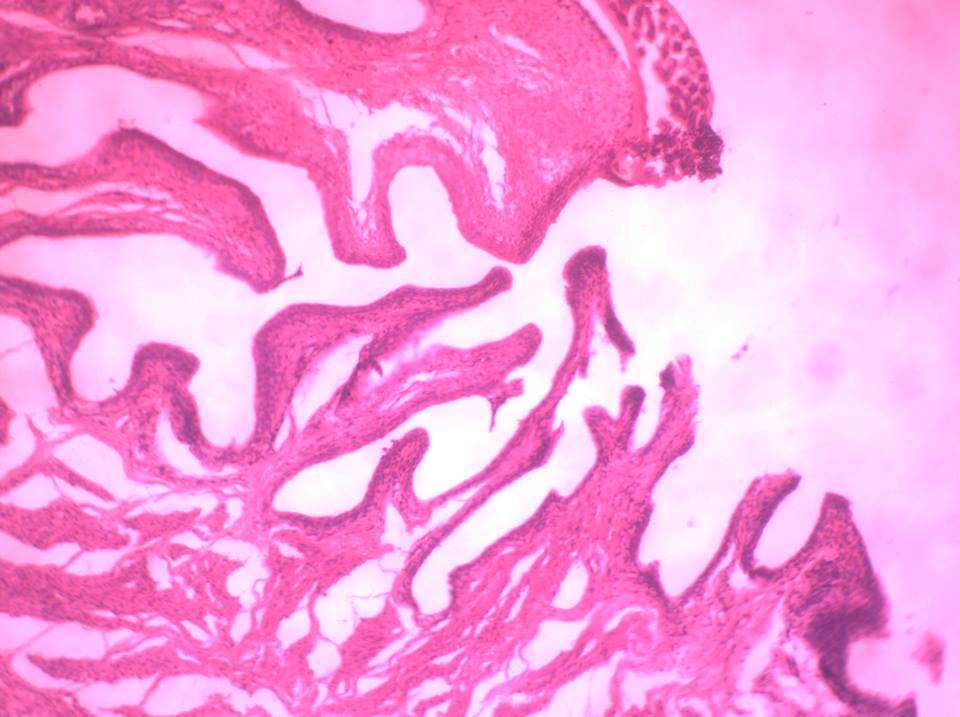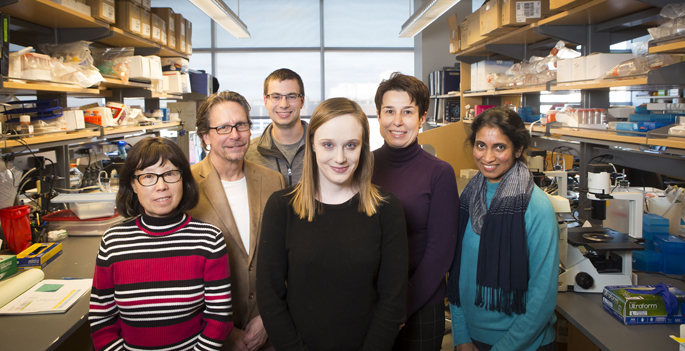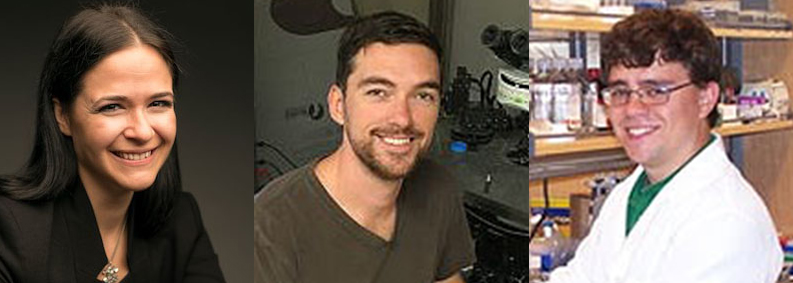Stephen Doster
-

A Close Look at β-Cell Transcription Factor Function
Over 27 million people in the United States are living with type 2 (adult onset) diabetes. In most cases, type 2 diabetes results from a mixture of multiple genetic and environmental factors. However, in a small subgroup of patients, mutation of a single gene leads to the form of type… Read MoreDec. 4, 2018
-

How Cancer Cell Death Can Thwart Therapy
Apoptosis is a mechanism of cell death that occurs in normal tissues as part of natural cell turnover and remodeling. Apoptotic cells are cleared by efforcytosis, a specialized form of phagocytosis mediated by MerTK, a receptor tyrosine kinase expressed by many phagocytic cells. MerTK recognizes a combination of ligands, such… Read MoreDec. 4, 2018
-

Colbran & Kavalali honored with endowed chairs
Vanderbilt University’s 10 newest endowed chair holders were lauded for their exemplary teaching and scholarship during a Nov. 27 ceremony at the Student Life Center. Provost and Vice Chancellor for Academic Affairs Susan R. Wente noted in her opening remarks that this group of chair holders… Read MoreNov. 30, 2018
-

Beta cell biomarker findings may speed diabetes research
by Bill Snyder Researchers at Vanderbilt University Medical Center have identified a biomarker for insulin-producing beta cells. Their finding, reported this month in the journal Cell Metabolism, could lead to improved ways to study and treat diabetes. The researchers demonstrated that human beta cells can be positively identified and… Read MoreNov. 29, 2018
-

Five Vanderbilt faculty elected AAAS fellows
Five Vanderbilt University faculty members have been elected fellows of the American Association for the Advancement of Science this year. They are among 416 fellows from around the country selected by their peers for membership in the world’s largest general scientific society “because of their scientifically or socially distinguished… Read MoreNov. 28, 2018
-

Ancora announces major funding awards to support Vanderbilt drug discovery research
Nov. 26, 2018, 7:00 AM By Jane Hirtle Ancora Innovation, LLC, the new collaboration between Vanderbilt and Deerfield Management established earlier this year, has completed its inaugural proposal review process and announced two projects selected for funding: A two-year project led by Craig Lindsley,… Read MoreNov. 27, 2018
-

Vanderbilt study suggests way to prevent rare lung cancer
Nov. 15, 2018, 11:16 AM by Bill Snyder Research by Vanderbilt scientists suggests that it may be possible to prevent or even reverse pulmonary arterial hypertension (PAH), a rare, progressive disease characterized by narrowing of and high blood pressure in the small arteries of the lungs. A key player… Read MoreNov. 15, 2018
-

Four researchers receive Young Investigator Grants
Nov. 15, 2018, 11:08 AM by Bill Snyder Four Vanderbilt University researchers are among 200 recipients of this year’s Young Investigator Grants awarded by the Brain & Behavior Research Foundation to support “innovative ideas for groundbreaking neurobiological research.” The New York-based Foundation, formerly known as the National Alliance for Research… Read MoreNov. 15, 2018
-

David G. Harrison awarded AHA Basic Research Prize for 2018
David G. Harrison, MD, the Betty and Jack Bailey Professor of Cardiology and director of the Division of Clinical Pharmacology at Vanderbilt University School of Medicine, has been awarded the American Heart Association’s Basic Research Prize for 2018. Harrison, who also directs the Vanderbilt Vascular Biology Center at Vanderbilt… Read MoreNov. 13, 2018
-

Society for Neuroscience honors Vivien Casagrande
The Society for Neuroscience has paid tribute to the late Vivien Casagrande’s groundbreaking research and dedication to the advancement of women in neuroscience with the Patricia Goldman-Rakic Hall of Honor Award. Casagrande, a longtime professor of cell and developmental biology, psychology, and… Read MoreNov. 12, 2018